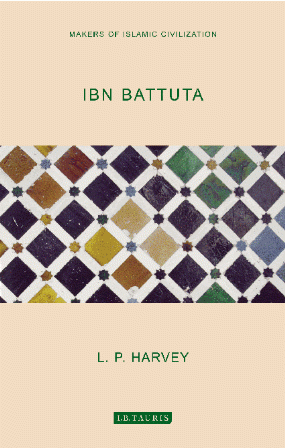Ibn Battuta
Ibn Battuta (d. ca. 700/1368 or 9) was famed in his own lifetime as the greatest traveller of his age. He covered the whole Islamic world (from his native Tangier to China), and crossed over its boundaries in Europe and sub-Saharan Africa. His wide-ranging observations on the exercise of political power and legal, commercial and cultural practices in the numerous places he visited, give his Travels a permanent relevance as an insider's view of the diversity of the Islamic world. His lively narrative, usually told with humour, irony and pathos, often uncovers the gap between theory and practice, ideal and reality.
After an overview of Ibn Battuta's journeys and how the Travels became a book, Pat Harvey picks out major themes for closer analysis—how Ibn Battuta's adventures were financed, how geography and natural history are presented, issues of race and gender as addressed in the book, and the religious framework through which Ibn Battuta moved. From Harvey's account of the traveller and what he saw, a vivid portrait emerges of a man with some share of human failings but who was nonetheless remarkable for verve and courage, unbounded curiosity, and for candour and skill in remembering and reporting the world as he found it.
Ibn Battuta was published in 2007.
Author
L. P. Harvey, formerly Cervantes Professor of Spanish at King's College, University of London, and Senior Associate Member of the Oxford Centre for Islamic Studies, was the author of Islamic Spain 1250 to 1500 (1990) and Muslims in Spain 1500 to 1614 (2005).

